American History Board Games are Fun & Interesting
Have you added American history board games to your lesson plans yet?
They’re some of the fun American history activities that are a regular part of our homeschool.
There are loads of quality educational board games out there, so it’s easy to find one to fit most school subjects and history is one of them.
I love using board games when we’re studying history. There are a lot of names, dates, and facts that kids need to learn, and games are a fun way to teach this information, as well as to do some review.
This post contains affiliate links.
4 Reasons Why Board Games Work
- Everyone is having fun, so it doesn’t seem like school. They don’t feel like they’re being put on the spot like some do when being asked if they remember something from a lesson. To them, they’re just answering a question/solving a problem during a game.
- Kids learns by listening to others as they take their turns and answer questions.
- The more they hear facts and work with the subject material, the more they remember. Frequently, my tween and teen will get something right the second or third time we play that they missed the first time.
- When they find a fact especially interesting, it’s an easy opening for further learning.
Playing educational board games for teenagers as a part of school helps me see areas I need to focus on.
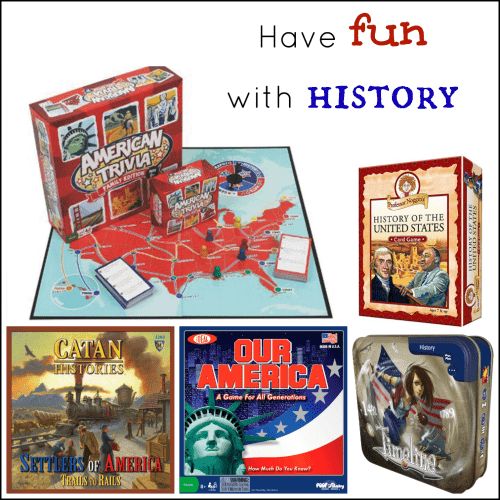
American History Board Games for Middle School
American Trivia Family Edition
This game is perfect for families because it contains three levels of difficulty – junior (great for most middle school students), expert, and genius. The goal is to race from city to city by correctly answering questions.
Each junior card contains three categories of questions – geography, general, and history, so when I’m using the game as part of our history studies, instead of using the spinner to select our category, we only read and answer the history questions before moving our playing pieces.
The history category spans the centuries.
Junior questions include:
- What killed the most soldiers during the Civil War: bullets, disease, or hunger?
- Who was Jimmy Hoffa: a judge, a politician, or a union leader?
- During what war did hundreds of soldiers spend the winter in Valley Forge?
- What was discovered at Sutter’s Mill in California in 1848?
- What scandal forced President Richard Nixon to resign in 1974?
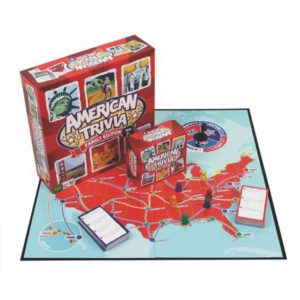
Professor Noggin’s History of the United States
This card game also has varying degrees of difficulty, so it will grow with your student. I think most middle school students would be comfortable moving between the easy and hard questions.
The goal is to be the player with the most cards at the end of the game.
Each card has three easy questions and three hard questions, all related to a specific American history topic such as:
- Inventors and Inventions
- Early Conflicts
- The Civil War Ends
- Disasters
Players roll a die, which determines what question from the back of the card they’ll answer.
Questions like:
- Who were nicknamed “Angels of the Battlefield” during the Civil War?
- What did “abolitionists” oppose?
- What did the 13th Amendment to the Constitution ban?
- Place these presidents in order, starting with the earliest: Dwight Eisenhower, Herbert Hoover, and Harry Truman.
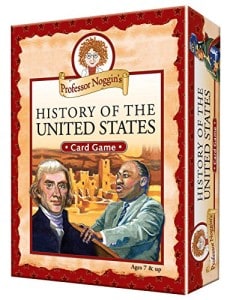
History Games on My Wishlist
Have you ever played these games? They’re on my list to purchase this year.
- Catan Histories: Settlers of America Trails to Rails
- Our America Board Game
- Timeline American History Game
Board games are a great way to make learning fun in your home school.
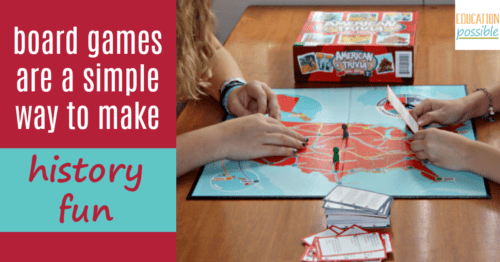
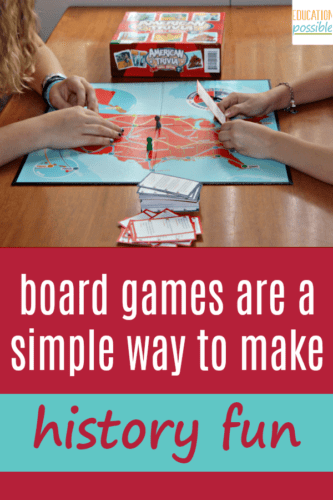
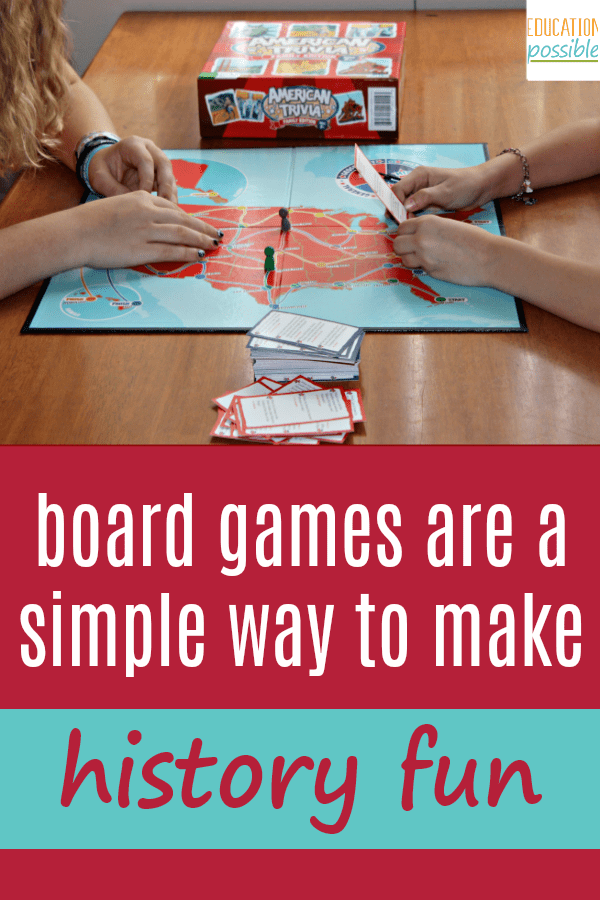

We have a history Memory game and we LOVE American Trivia but we’ll have to try out Professor Noggin’s game (it is on my wishlist!).
I’ll have to look for a history memory because my kids love to play memory. We have a state parks version that they really like to play. Thank you for sharing!
In my opinion parents today underestimate a usefulness of playing bard games for children. Children learn when playing and the more they play the more they learn. Thank you so much for useful material!
I totally agree! Board games are a low-key way to learn, so it’s easy to miss their educational value. I’m constantly amazed at what my girls pick up when we play games. You’re welcome and thank you for sharing!